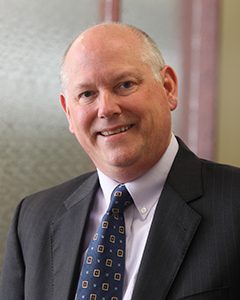It’s Always a Good Time to Rethink Retirement Strategies

Question: “When is it time to rethink your strategy?” Answer: “Always!”
Self-evident? Perhaps, but a recent PwC study entitled “Retirement in America: Time to Rethink and Retool” provides some intriguing insights into where our industry stands now, and what it can do to improve the situation.
While it notes that the industry is under a number of pressures, the survey also declares:
Firms that focus on the evolving needs of participants by addressing individual challenges with new benefit offerings and holistic advice can increase participation. Access to retirement programs can also improve through lower cost turnkey programs specifically designed for small business which, in total, we estimate can unlock an additional $5 trillion in retirement assets.
$5 trillion is certainly nothing to sneeze at … especially as the nation’s retirement savings figures continue to be a source of concern. According to the U.S. Federal Reserve, roughly one-quarter of adults have no retirement savings at all – and just 36% believe that their retirement planning is where it needs to be.
PwC estimates that the median retirement savings account of $120,000 for those approaching retirement (age 55 to 64) will likely provide less than $1,000 per month over a 15-year retirement span.
Given increasing life expectancies and the continuing rise in health care costs – and the always-present lack of absolute certainty over where the economy might be in the future — $1,000 a month will not go very far.
PwC’s report also points out that roughly 63 million individuals in the U.S. – about half of the workforce – do not have access to or participate in an employer-sponsored retirement program.
But before a feeling of despair can set in, the PwC study points out that there is ample room for improvement within the retirement industry. As is the case in many industries, too often companies – in any and all sectors – grow complacent, and end up responding (if at all) in a reactive, rather than proactive manner. Reviewing average life expectancies, how plan participants view their golden years taking shape, and what sorts of tools they expect to use today — and 20, 40, even 60 years from now, for some – are all of critical importance to retirement providers.
What worked in 2011 or even 2001, much less 1991 or 1981, likely needs at the very least some tweaking in today’s environment. And, as PwC notes, new retirement plan solutions such as Pooled Employer Plans (PEPs) may prove to be extremely attractive and beneficial to sponsors and participants alike.
In addition, the wave of Defined Contribution (DC) plan-only retirees that we are seeing offers even another reason to expand retirement savings options. Guaranteed income, through in-plan annuities and other options, is one method – and, again, offering a PEP and/or other alternatives may also help increase plan participation.
We also agree with PwC’s opinion that digitizing one’s business has become practically de rigeur in today’s world. With technology continuing to evolve at a breakneck pace, it behooves all of us to stay current with the latest developments —not only to lower maintenance costs and improve efficiencies but also to prove to clients that you are not “your father’s” company.
There are a number of additional insights in the PwC report – again, no surprise — but the overarching theme is clear: The time is always right to examine what your firm is doing, and what it could and should be doing, to better serve plan participants.
About the Author
